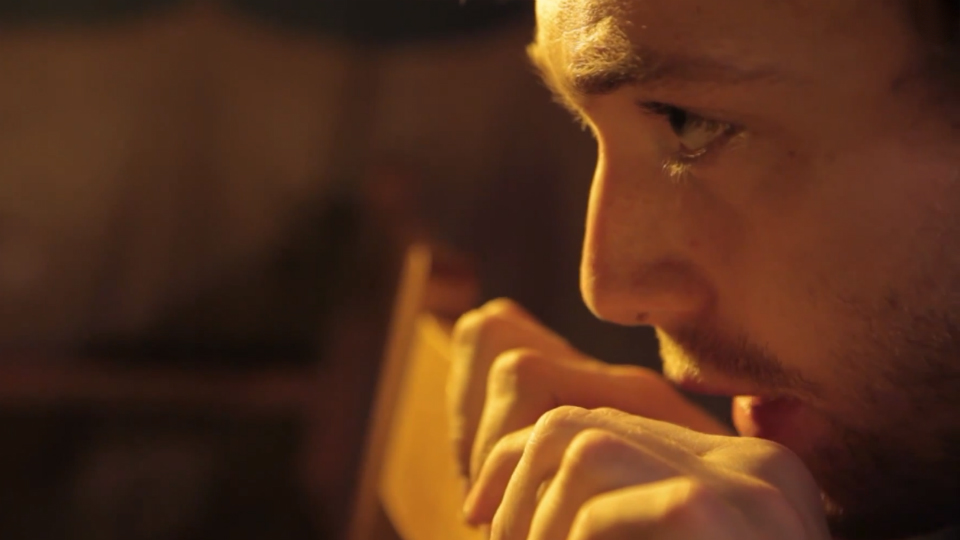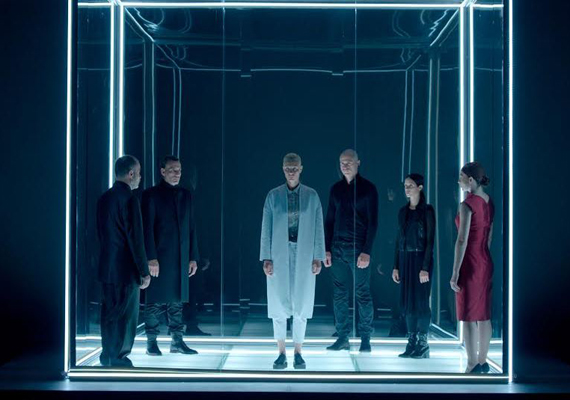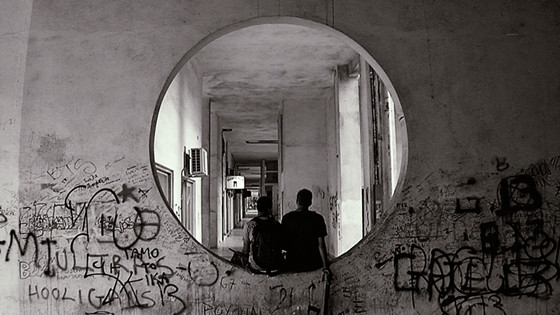
As history has shown, public tragedy commonly inspires and motivates artists to create immaculate masterpieces. It is no wonder then, that Greece’s financial crisis that began in late 2009 triggered an eruption of amongst other things, a cinematic movement of the Greek New Wave Cinema with the likes of Lanthimos and Koutras gaining inspiration from the country’s chaos.
The wave came to be nicknamed “Weird” due to the unusual narrative and character choices that reflect the instability and troubled environment of the country and its society. Although rising to reach an international audience, it is no surprise that most of these movies were made with very little funding considering Greece’s financial position. Despite this, this factor itself added something special to the movement and consequently became somewhat of a characteristic of it.
In such harsh times, the directors encourage people to reform their opinion on various social and cultural issues such as family, sexuality, relationships and most importantly freedom, oppression and power. So perhaps when it comes to such challenging topics, the Greeks are indeed doing it right as they catch our attention and in turn cause a commotion in regards to the controversially bizarre images and metaphors that their films portray.
10. Wasted Youth (Argyris Papadimitropoulos & Jan Vogel, 2011)

As they say, opposites fabricate an attraction; it is no wonder that “Wasted Youth” weaves together the paths of these two characters- Harry (Harris Markou), a young boy exploring Athens on his skateboard, living in ignorant bliss as he refuses to visit his sick hospitalised mother or find a summer job, rebelling against any responsibilities.
The other, an older man Vasilis (Ieronimos Kaletsanos), who is overburdened with responsibilities for his family and from his exhausting and low-paying job as a policeman; despite this he is too afraid to change his life or career path due to helpless fear of economic failure.
“Wasted Youth” is vaguely based on the events that were one of the final triggers to the riots of Greece in 2008, following two policemen shooting a 15 year old boy.
The two protagonists’ daily struggle (or rather the struggle of one day, as that is the period the movie covers) is shown in a parallel contrast with ubiquitous presence of social instability and economic turmoil as well as the miscommunication between the two generations, leading up to their meeting and the film’s climax at the end.
9. Boy Eating the Bird’s Food (Ektoras Lyzigos, 2012)

Although based on an 1890 Norwegian novel, the story of Boy eating the Bird’s Food is far too relevant to the political and economic breakdown of Greece. Based in the city of Athens, the psychological drama follows Yorgos (Yiannis Papadopoulos), a young man who for unknown reasons has become estranged from everyone apart from his canary bird with whom he shares not only a crumbling apartment but also its bird seeds.
Despite having a striking vocal talent, Yorgos’ starvation prevents him from carrying out an aria without fainting from weakness, and so he spends his days in a blur of scavenging for any scraps in the rubbish or even stealing from his old helpless neighbour. As the days pass his situation goes from bad to worse as he evidently loses access to water, then to his apartment altogether, ending up at the mercy of the streets.
However, after pawning some of his belongings, whether out of kindness or self-destruction or perhaps because he simply has no one else in the world, he spends the received coins on bird food for his only companion.
A sorrowfully voyeuristic tale of hunger and loneliness in the abominably cruel reality of a situation that brings people to do unthinkable things in order to survive.
8. Strella AKA A Woman’s Way (Panos H Koutras, 2009)

Strella is an unapologetic tale of an unusual love between a man and a young transexual. Having just come out of prison, Yiorgos (Giannis Kokiasmenos) is on a mission to reconnect with his previous life by tracing down his son whom he hadn’t seen in 15 years.
While staying at a cheap hotel, he meets the beautiful young transvestite prostitute Stella (Mina Orfanou) who introduces herself by the nickname Strella which combines he name and “trella” the Greek word for madness; and indeed as the movie progresses the audience begin to truly understand why the young girl is quite outrageously mad indeed.
It seems to be love at first sight between the two, and after spending the night together their attraction fumes as their relationship continues. They seem to be the perfect match, with nothing being able to tear them apart. But when Yiorgos goes back to his village in order to sell his family home, he uncovers a piece of small town gossip regarding his son that could send his new-found love into flames.
This movie is a tough one to watch without an open mind as it will make you battle with your own morals and beliefs as well as the concept of right and wrong as it bravely challenges all societal beliefs, creating beauty where we are taught there is none.
7. Interruption (Yorgos Zois, 2015)

The movie is a glorious blur between reality and fiction, spectator and actor. “Interruption” is an elongation of the first few minutes during an event that happened at a Moscow Theatre in 2002, when a group of Chechens took over the theatre during a performance leaving both the audience and the viewers behind the doors thinking that this was all part of the act, until the violence became clearly evident to be real.
“Interruption” takes place inside a theatre in Athens where a postmodern adaptation of the famous Greek tragedy Oresteia is being performed; the play is suddenly and unknowingly interrupted by a group of armed hijackers, or the Chorus, who take over the stage at the eyes of a confused audience and even more confused actors.
In postmodernism, anything can happen – and thus, the audience remain in the shadows of reality but now at the centre of the performance as they are invited to step out of their role as mere spectators and become part of the action, all under the command of the God-like director and leader of the Chorus (Alexandros Vardaxoglou).
With an agenda of his own, he challenges the deluded audience to change the play’s story and puts the lives and fate of the characters and actors into their ignorant hands. He pushes and tests people’s comfort zones, critiquing their inability to break out of their sheep-like mentality.
Through this absurd experiment, both Zois and the leader of the Chorus explore the “art of viewing” as well as engaging with different perspectives in regards to both the tragedy at stake and life as a whole.
6. Tungsten (Giorgos Georgopoulos, 2011)

Metaphors are one of the dominating characteristics of the Greek New Wave cinema. “Tungsten” uses electricity as the metaphor which in combination with harsh violence, and psychological torment create a painting of a dimming society plummeting into darkness.
A movie where the good guys and bad guys switch roles as they succumb to the torturing and chaotic reality of moneyless bank accounts and injured hopes.
“Tungsten” challenges human identity and humanity itself in time of crisis, through three separate storylines that run into each other at various points of the non-linear timeline. Despite their differences, all of the characters are hopelessly trying to keep their lives together from ruin from the omnipresent financial crisis that so skilfully highlights its presence during the day that the events unfold, through the constant lack of electrical power.
The story follows a ticket inspector (Vangelis Mourikis) who is sinking beneath his debts as well as the burden of his family breaking apart, a couple (Tasos Nousias and Kora Karvouni) whose relationship seems to be coming to a tragic end and two teenagers (Omiros Poulakis and Promitheas Aliferopoulos) who wonder around the dying Athens with an old gun until their stories intersect, triggering a modification of their paths and forcing the characters to take responsibility for what has become of them, as they long to find light in the never ending darkness.